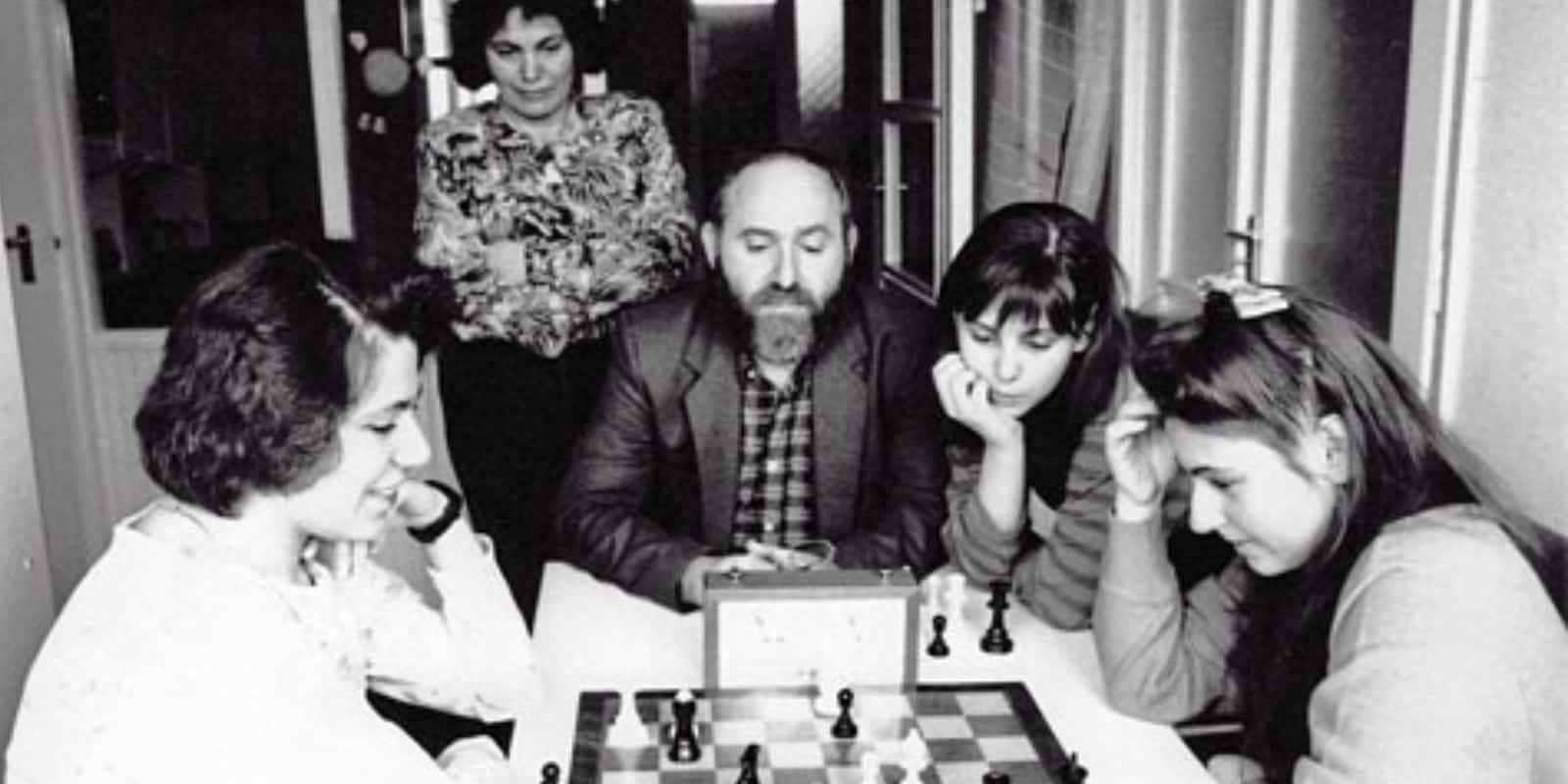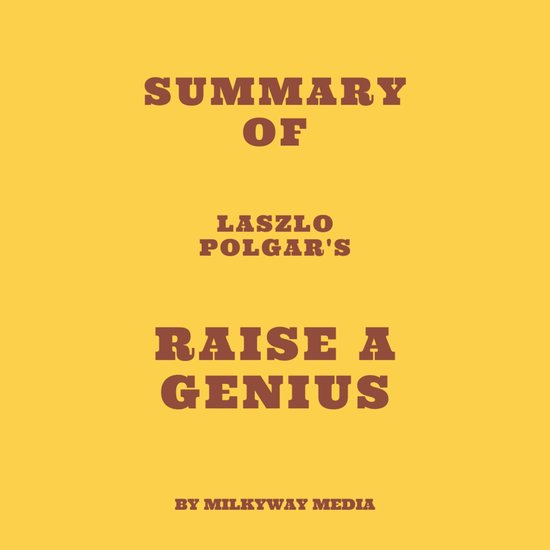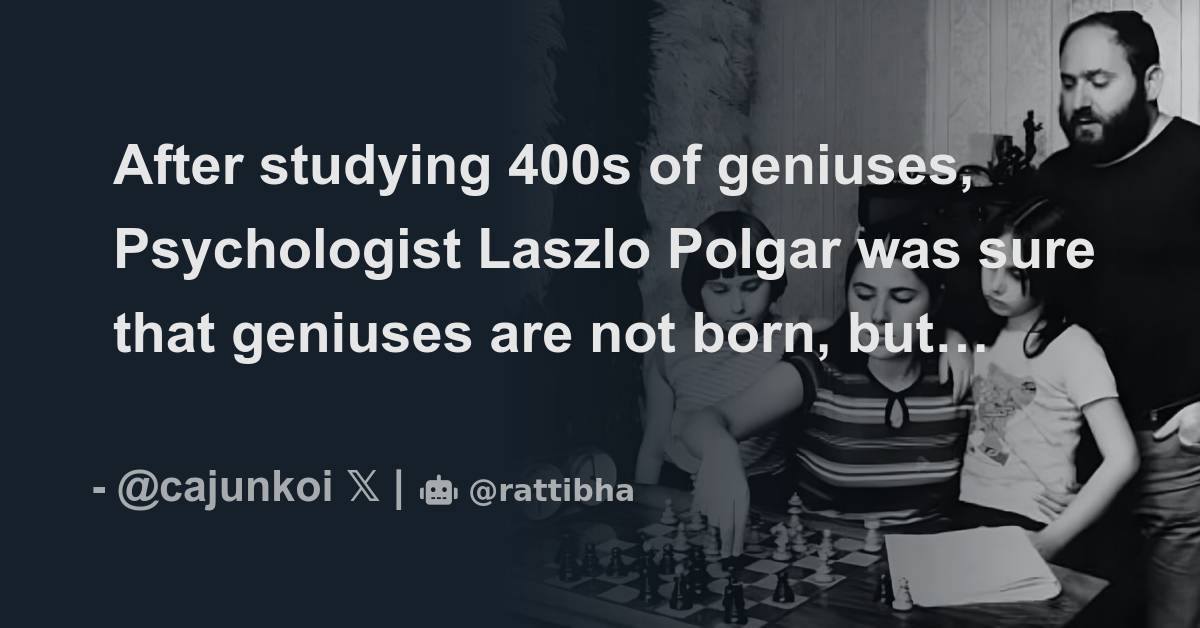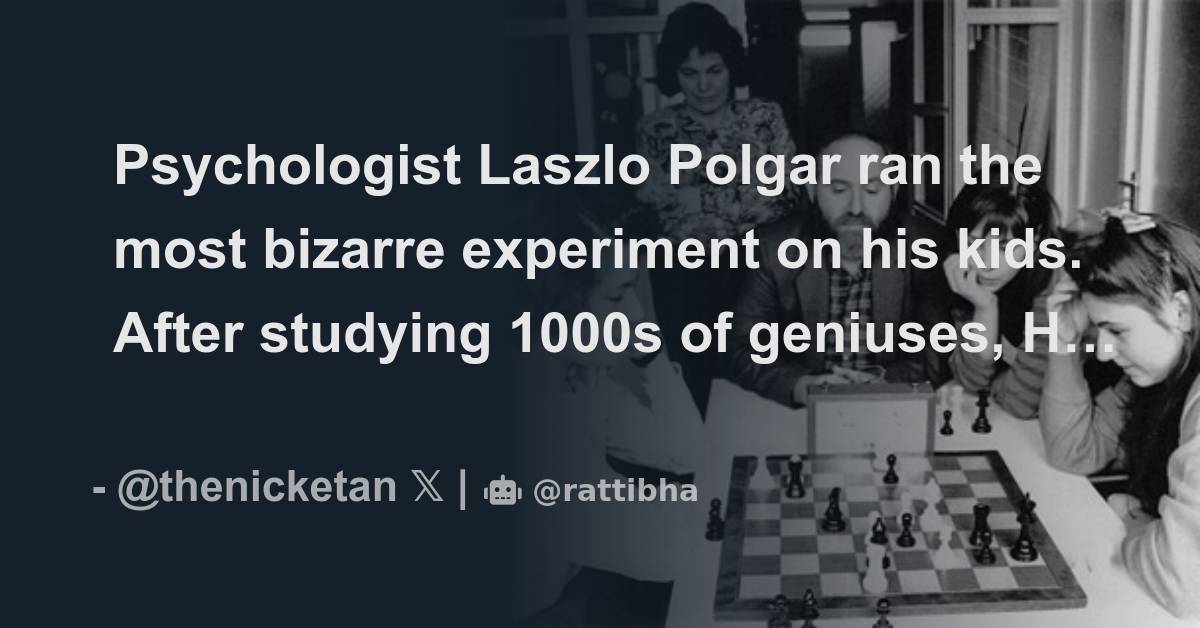Laszlo Polgar Book How To Raise A Genius

The controversial yet undeniably influential book, "Bring Up Genius!", penned by Hungarian educational psychologist Laszlo Polgar, continues to spark debate decades after its initial publication. Polgar, most famously known for his experiment in raising his three daughters to become chess prodigies, argued that genius is not solely innate but can be cultivated through deliberate practice and specialized education.
At the heart of Polgar's philosophy lies the belief that early specialization and intensive training in a chosen field, coupled with a supportive and stimulating environment, can unlock exceptional potential. This approach, detailed in "Bring Up Genius!", has drawn both praise for its groundbreaking insights and criticism for its perceived rigidity and potential for neglecting other aspects of child development.
The Polgar Experiment: A Chess Legacy
Laszlo Polgar and his wife, Klara, decided to home-school their daughters, Judit, Susan, and Sofia, focusing primarily on chess. Their experiment was not just about chess; it was a deliberate test of Polgar's educational theories.
The results were remarkable: all three daughters became highly accomplished chess players, with Judit Polgar achieving the title of Grandmaster at the age of 15, becoming the youngest ever at the time and widely regarded as the strongest female chess player of all time.
Susan and Sofia also achieved Grandmaster and International Master titles, respectively, further solidifying the success of Polgar's unconventional methods.
Key Tenets of "Bring Up Genius!"
Polgar's book emphasizes several key principles. One of the most important aspects is early specialization and focus on a specific area of interest.
Another is the creation of an immersive and stimulating environment, rich in resources and opportunities for practice.
Finally, parental involvement and support are crucial for guiding and motivating the child throughout their learning journey.
"One can be a genius at anything, provided one studies and practices relentlessly," wrote Laszlo Polgar, encapsulating the core message of his book.
Criticism and Controversy
Despite the undeniable success of the Polgar sisters, "Bring Up Genius!" has faced criticism. Some argue that Polgar's approach is too restrictive and can lead to burnout and a lack of well-rounded development.
Critics also question the ethical implications of subjecting children to such intensive training at a young age, potentially sacrificing other experiences and interests.
Concerns have been raised about the psychological impact of constant pressure to excel, potentially leading to anxiety and stress.
The Broader Impact on Education
Regardless of the criticisms, "Bring Up Genius!" has had a significant impact on educational thinking. It prompted discussions about the potential of early childhood development.
The book encouraged parents and educators to consider alternative approaches to learning and talent development, such as customized curriculum and specialized training programs.
The Polgar experiment also highlighted the importance of motivation, perseverance, and a supportive learning environment in achieving extraordinary results.
A Legacy of Debate
"Bring Up Genius!" remains a controversial and thought-provoking work. It offers a compelling argument for the power of deliberate practice and specialized education.
While Polgar's methods may not be suitable for every child or family, his book serves as a reminder that potential can be cultivated, and that with dedication and the right approach, extraordinary achievements are possible.
The legacy of Laszlo Polgar and his daughters continues to inspire debate about the nature of genius and the best ways to nurture human potential.


















